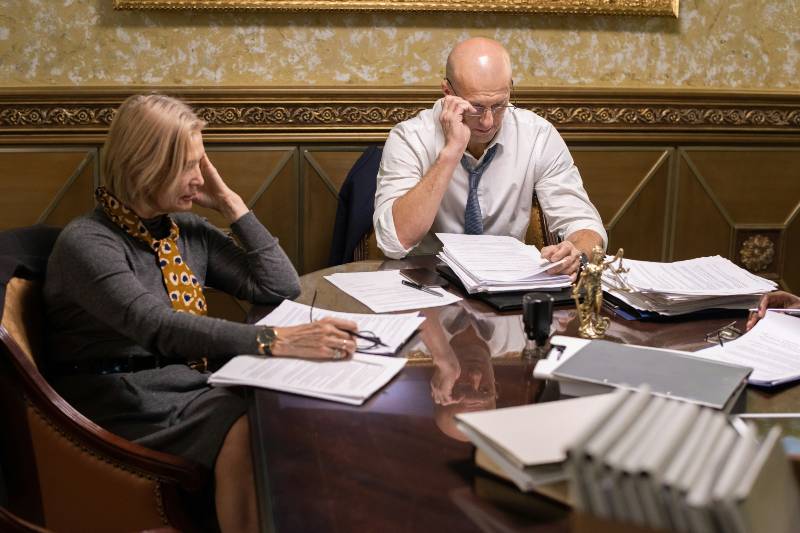You may decide not to pay your lawyer because you can’t afford it or you’re unhappy with the lawyer service.
But at the same time, you’re afraid your lawyer will take action against you. You’re not alone in such worry.
The fear of dealing with the consequences of not paying your lawyer can feel overwhelming. So, you should understand what could happen and how you can navigate this tricky situation.
3 Reasons You Don’t Pay Your Lawyer
As you know, a good relationship with your lawyer is important to the success of your case, you want to keep the relationship positive, but sometimes, things don’t go as planned.
There are 3 main reasons why you may find yourself in a position where you can’t or won’t pay your lawyer.
1. Financial Hardship
Life is unpredictable. You may have the best intentions to pay your legal fees, but unexpected expenses or financial setbacks can make it tough. Unemployment, medical bills, or other emergencies can quickly deplete your resources.
2. Dissatisfaction with Service
Sometimes, the issue isn’t about money, but the quality of service. If you feel that your lawyer isn’t giving your case the attention it deserves or if the outcomes aren’t what you expected, you may question why you should pay the full amount.
3. Inadequate Communication
Another common reason for withholding payment is feeling left in the dark about your case’s progress.
Law and its processes can be complex, and without clear communication from your lawyer, you may feel dissatisfied and reluctant to settle the bill.
Is Your Reason Not to Pay Your Lawyer Legal?
Before deciding not to pay your lawyer, it’s important to understand if your reasoning aligns with what the law considers valid. Non-payment can lead to significant consequences, so knowing your legal standing is a must.
Disputing Charges
If your reason for not paying is due to dissatisfaction with services provided, you have the right to dispute those charges.
However, it must be done legally. Document your concerns, communicate them to your lawyer, and if necessary, you can seek mediation or arbitration as provided by many state bar associations.
Hardship Considerations
While financial hardship is a reality for many, it’s not always considered a legal basis for non-payment.
To your surprise, lawyers are often willing to work with clients experiencing financial difficulties, potentially allowing for a payment plan or even reduced fees under certain circumstances.
What Your Lawyer Will Do for You If You Don’t Pay
When you don’t pay your lawyer, they have several options at their disposal to protect their interests. Understanding these common steps can help you anticipate their actions and possibly find a way to resolve the situation amicably.
Step 1: Communication and Reminders
Initially, your lawyer will likely reach out to you with reminders about your outstanding balance. Communication is key, and they’ll probably attempt to understand your situation and urge you to settle the dues.
Step 2: Fee Dispute Resolution Services
Your lawyer may suggest utilizing a fee dispute resolution service if the issue is related to dissatisfaction with services rendered.
Many state bar associations offer this service to help resolve disputes between clients and lawyers through mediation or arbitration.
Step 3: Withdrawal from Representation
If the situation doesn’t improve, your lawyer may choose to withdraw from representing you, especially if your lack of payment materially affects their ability to perform legal services.
But, withdrawal is subject to court approval if your case is in court, and lawyers have an ethical obligation to avoid harm to their clients’ interests when withdrawing.
Step4: Legal Action for Fee Collection
As a last resort, your lawyer could initiate legal action to recover unpaid fees. This could involve suing you for the amount owed. If it reaches this stage, additional costs, including court fees and interest, could accumulate, increasing your financial burden.
What to Do If You’re Willing to Pay but Cannot Afford
When you recognize the value of your lawyer’s work but find yourself unable to foot the bill due to financial constraints, there are steps you can take to address the situation.
Open communication and honesty about your circumstances can significantly affect the outcome.
Communicate Openly with Your Lawyer
The first step is to initiate an open, honest conversation with your lawyer about your financial situation. Many lawyers are willing to work with clients who face genuine financial hardships.
Explain your situation and express your willingness to pay, highlighting any temporary financial setbacks you’re experiencing.
Request a Payment Plan
After explaining your situation, you can ask if it’s possible to arrange a payment plan that suits your financial capabilities.
Many legal practices are open to structuring flexible payment arrangements to facilitate the settlement of fees over a more extended period.
Negotiate Fees
If your financial situation is unlikely to improve in the short term, you may consider negotiating the overall fees. This could mean asking for a reduction in rates or requesting that certain charges be waived.
While this isn’t always possible, some lawyers are willing to make concessions, especially if you’ve demonstrated a willingness to pay and have been transparent about your financial difficulties.
Seek Legal Aid or Pro Bono Services
In cases where you genuinely cannot afford legal representation and your circumstances are dire, it may be worth exploring legal aid organizations or looking for lawyers who provide pro bono (free) services.
Many jurisdictions have legal aid societies aimed at assisting individuals who cannot afford legal representation.
These organizations can offer guidance on what resources are available to you, whether it’s through their services or by connecting you with lawyers willing to take on cases for those who cannot pay.
Investigate Alternative Legal Services
Sometimes, full legal representation may be beyond your financial reach, but there could be alternative services that are more affordable.
Some lawyers offer unbundled legal services, meaning they can assist you with specific parts of your case for a reduced fee, rather than handling every aspect.
In this way, it can reduce costs while still providing you with professional legal assistance for critical elements of your case.
Conclusion
Failing to pay your lawyer can lead to several problems, from strained relations and reduced support in your legal matters to potential legal action against you for unpaid fees.
Therefore, understanding why you may be unable to pay, knowing the legal implications, and being aware of your lawyer’s possible reactions can help you navigate this challenging situation more effectively.
Most importantly, communication is key. Whether you’re facing financial hardships, are dissatisfied with the service received, or if there’s been a misunderstanding about fees, talking to your lawyer openly and honestly is typically the best first step.
Lawyers are professionals who understand that circumstances can change, and many are willing to work with you to find a solution, whether through payment plans, fee negotiations, or even directing you toward legal aid or pro bono services.
Moreover, you need to address these issues early on. The longer you wait to communicate with your lawyer about your inability to pay, the more complex the situation can become, potentially leading to legal action that could have been avoided.
Early discussions can often prevent the situation from escalating and help maintain the relationship you’ve built with your lawyer, which is especially important if you’re in the midst of legal proceedings.
Lastly, remember that lawyers are bound by ethical guidelines. They’re required to treat clients fairly and to make reasonable efforts to accommodate clients in financial distress. If you believe that your lawyer has acted unethically in handling your case or in their efforts to collect fees, you can also consider filing a complaint with your state’s bar association.





